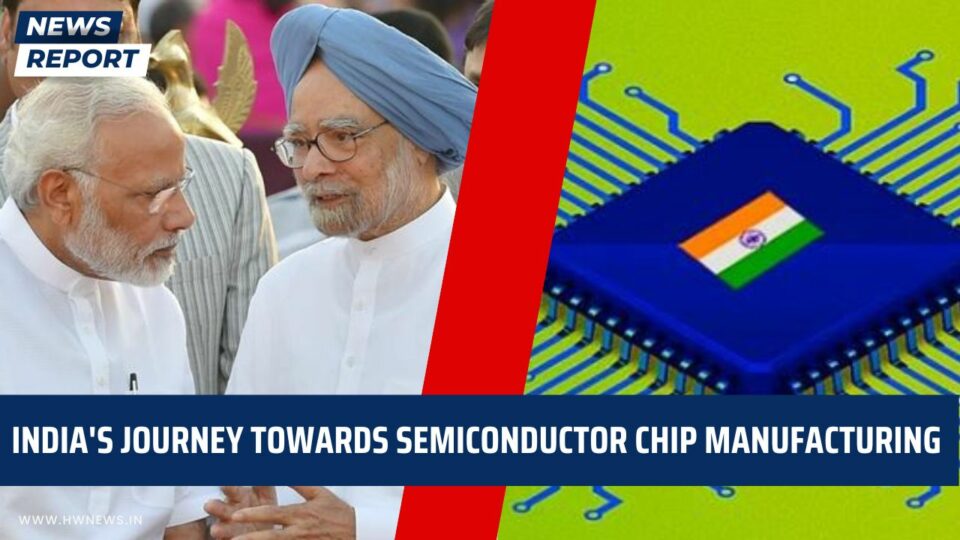In a disappointing turn of events, the joint venture between Taiwanese electronics manufacturing giant Foxconn and Vedanta, aimed at establishing semiconductor and display production plants in Gujarat has ended. But the question is did india got a chance to become a leading semiconductor chip producer in the late 1960’s and was the mms government responsible and how later china had the same opportunity But before telling the story behind this let me first give you insights on what are the 3 process of the chip production The Three Stages of Chip Production: The complex process of chip manufacturing comprises three significant stages: design, fabrication and testing. While India possesses capabilities in stages one and three, it lacks a crucial component in the second stage fabrication. Notable integrated device manufacturers like Intel perform all three steps, while companies such as ARM and Apple focus primarily on design, outsourcing fabrication and assembly. The Significance of Chip Fabrication: Chip fabrication, commonly conducted in large manufacturing plants called fabrication foundries, plays a vital role in numerous sectors. From mobile phones, computers, and gaming devices to automobiles, smart appliances, defense equipment, and even satellites, all rely heavily on semiconductors. Now coming back to the our 1 question did india got a chance to become a leading semiconductor chip producer in the late 1960’s During 1960, Fairchild Semiconductor contemplated establishing a fabrication plant in India. However, due to bureaucratic challenges, the company ultimately chose Malaysia over India. In 1962, Bharat Electronics Ltd., a government-owned company, set up a fab to manufacture silicon and germanium transistors. Regrettably, Bharat Electronics Ltd. struggled to meet global quality and price standards, leading to its eventual shutdown. A Glimmer of Hope: In 1987, Professor A.R. Vasudeva Murthy of IISc collaborated with Bharat Electronics Limited to establish Metkem Silicon Ltd., which aimed to produce semiconductors. This initiative presented a pivotal opportunity for an electronics revolution in India. However, without promised government support, particularly subsidized electricity, Metkem failed to produce high-quality polysilicon chips, ultimately leading to its demise. Tragic Setbacks: In another unfortunate incident, the Semiconductor Complex Ltd. in Chandigarh, which started with cutting-edge technology, was tragically destroyed by fire in 1989. At that time, neither China nor Taiwan had entered the fab space, indicating a significant setback for India. Coming to are second question , was the mms government responsible In 2006, the government under Prime Minister Manmohan Singh declared India’s first semiconductor policy. However, progress in this area remained stagnant for six years. It was only in 2011 that the government invited expressions of interest from foreign companies to invest in India. Critics argue that the lack of serious commitment from the government hindered semiconductor manufacturing in the country. In fact, in 2013, the World Semiconductor Council was compelled to write a letter to the government, urging cooperation in promoting the semiconductor industry in India. And answering to are 3 question China, recognizing the immense potential in the semiconductor industry, welcomed the project that India failed to nurture. Offering the necessary support and resources, China attracted the company that had initially set its sights on India. Another multinational chip producer, witnessing the tumultuous experience faced by its counterpart, reconsidered its plans for a fabrication plant in India, ultimately withdrawing from the venture. The substantial investment and robust electricity supply demanded by chip plants posed significant challenges for India. India’s struggle to become a leading semiconductor chip producer stems from missed opportunities, bureaucratic hurdles, and inadequate government support. As China capitalizes on the global semiconductor industry’s growth, India must reassess its strategies and actively foster an ecosystem conducive to chip manufacturing. The significance of semiconductor chips in various sectors necessitates proactive measures to strengthen India’s position in this rapidly evolving technological landscape.
#Semiconductor #Chip #Foxconn #Production #SemiconductorIndustry #IndiaTech #China #TechRevolution #ManmohanSingh #UPA #MMS #India #Taiwan #Vedanta #Gujarat #PMModi #HWNews
As an independent media platform, we do not take advertisements from governments and corporate houses. It is you, our readers, who have supported us on our journey to do honest and unbiased journalism. Please contribute, so that we can continue to do the same in future.

